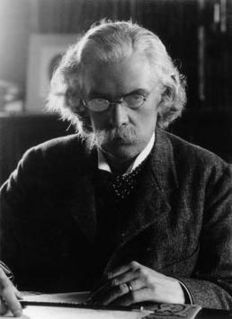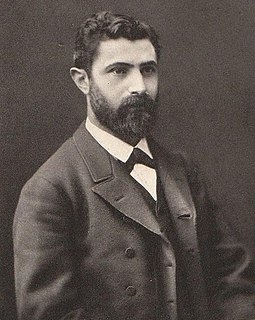A Quote by Isaac D'Israeli
Theories of genius are the peculiar constructions of our own philosophical times; ages of genius had passed away, and they left no other record than their works; no preconcerted theory described the workings of the imagination to be without imagination, nor did they venture to teach how to invent invention.
Related Quotes
Genius is neither learned nor acquired. It is knowing without experience. It is risking without fear of failure. It is perception without touch. It is understanding without research. It is certainty without proof. It is ability without practice. It is invention without limitations. It is imagination without boundaries. It is creativity without constraints. It is...extraordinary intelligence!
We have our little theory on all human and divine things. Poetry, the workings of genius itself, which, in all times, with one or another meaning, has been called Inspiration, and held to be mysterious and inscrutable, is no longer without its scientific exposition. The building of the lofty rhyme is like any other masonry or bricklaying: we have theories of its rise, height, decline and fall -- which latter, it would seem, is now near, among all people.
I think imagination is at the heart of everything we do. Scientific discoveries couldn't have happened without imagination. Art, music, and literature couldn't exist without imagination. And so anything that strengthens imagination, and reading certainly does that, can help us for the rest of our lives.
The old idea that some genius pulls all of this stuff out of the air is ridiculous. As Ridley pointed out, the only way Edison could invent the lightbulb is because all the elements had been developed before. That's obvious it wasn't just his genius - 20 others developed it at the same time. And that's true for almost every invention and discovery.
Genius is its own reward; for the best that one is, one must necessarily be for oneself. . . . Further, genius consists in the working of the free intellect., and as a consequence the productions of genius serve no useful purpose. The work of genius may be music, philosophy, painting, or poetry; it is nothing for use or profit. To be useless and unprofitable is one of the characteristics of genius; it is their patent of nobility.
There were times when it appeared to Dorian Gray that the whole of history was merely the record of his own life, not as he had lived it in act and circumstand, but as his imagination had created it for him, as it had been in his brain and in his passions. He felt that he had known them all, those strange terrible figures that had passed across the stage of the world and made sin so marvellous, and evil so full of subtlety. It seemed to him that in some mysterious way their lives had been his own.





































